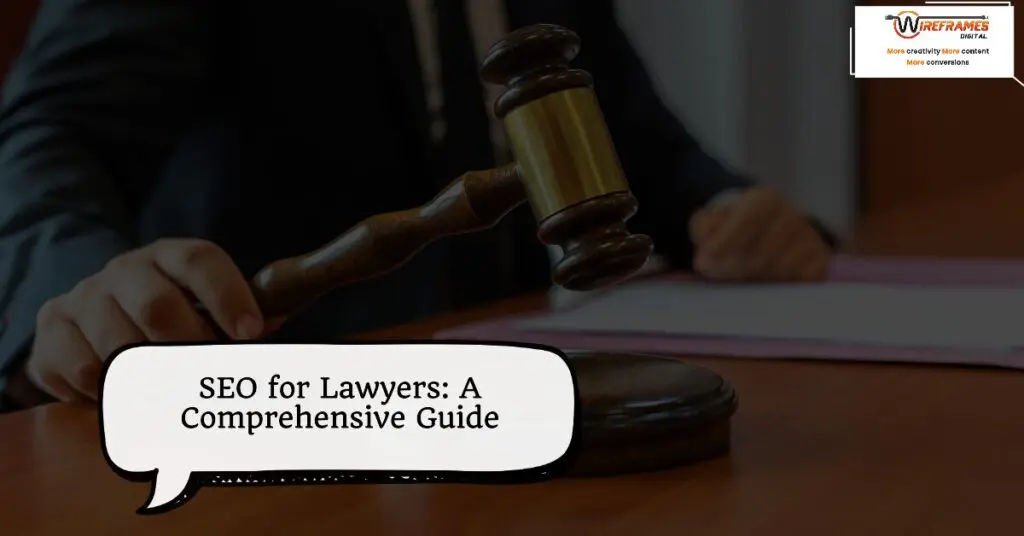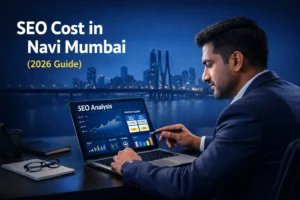1. Introduction to SEO for Lawyers
What is SEO and Why it Matters for Lawyers
Search Engine Optimization (SEO) is the practice of enhancing a website to rank higher on search engine results pages (SERPs) for relevant queries. For law firms, SEO is crucial because it increases visibility, drives traffic, and ultimately generates new clients. Think of SEO as your digital marketing strategy to stand out in the crowded online legal marketplace.
The Benefits of SEO for Legal Practices
- Increased Online Visibility: Effective SEO for law firms ensures that your practice appears in the top results when potential clients search for legal services. This visibility is key to attracting new clientele.
- Higher Quality Traffic: Unlike many traditional advertising methods, SEO targets users actively searching for legal services, making them more likely to convert into clients.
- Cost-Effective Marketing: Compared to pay-per-click advertising, organic rankings achieved through SEO can be a more sustainable and cost-effective long-term strategy.
How SEO Differs for Lawyers Compared to Other Industries
SEO for attorneys involves a more localized approach. People searching for legal services typically seek local practitioners. This makes local SEO tactics crucial for law firms. Moreover, legal content needs to be exceptionally trustworthy and authoritative, often requiring professional expertise to ensure accuracy and compliance with ethical standards.
2. Understanding the Basics: SEO Tips for Law Firms
Keyword Research and Selection
How to Choose the Right Keywords for Legal Services
Selecting the right keywords is the foundation of a successful SEO strategy for attorneys. Start by brainstorming common terms potential clients might use, such as “divorce lawyer,” “personal injury attorney,” or “criminal defense law firm.”
Tools for Effective Keyword Research
Leverage tools like Google Keyword Planner, SEMrush, or Ahrefs to identify relevant keywords, search volume, and competition. Long-tail keywords (e.g., “best family lawyer in New York”) often yield better results due to lower competition and higher intent.
On-Page SEO Optimization
Writing SEO-Friendly Titles and Meta Descriptions
Crafting optimized titles and meta descriptions is key. Titles should be concise yet descriptive, incorporating primary keywords. For example, “Experienced Criminal Defense Lawyer in Chicago.”
Using Header Tags Correctly
Header tags (H1, H2, H3) structure your content and signal its importance to search engines. The primary title should use the H1 tag, while subheadings should use H2 and H3 tags as necessary.
Importance of Alt Text for Images
Alt text for images improves accessibility and provides search engines with context about the image content. For example, for a photo of a courtroom, the alt text might be “courtroom with judge and attorneys.”
Content Quality and Relevance
Creating High-Quality Legal Content
High-quality content is informative, accurate, and engaging. It addresses the needs and concerns of potential clients. For example, a blog post detailing what to expect during a DUI case can attract clients searching for this specific information.
Incorporating Keywords Naturally
Avoid “keyword stuffing,” which can harm your SEO efforts. Instead, include keywords naturally within the content, ensuring it reads well for human audiences.
3. Local SEO for Attorneys
Importance of Local SEO
Local SEO ensures that your firm ranks well in local search results. For example, someone searching for “personal injury lawyer near me” is looking for a local professional.
Why Local SEO Matters for Law Firms
Local searches often have higher intent. When someone searches for a “divorce attorney in Miami,” they are likely looking to hire soon. Optimizing for local search helps you capture these high-intent queries.
Google My Business Optimization
Setting Up and Optimizing Your Profile
Create or claim your Google My Business (GMB) listing. Ensure all information is accurate and up-to-date, including your business name, address, phone number, and hours.
Collecting and Responding to Reviews
Encourage satisfied clients to leave reviews on your GMB profile. Responding to reviews—both positive and negative—demonstrates that you value client feedback and are actively engaged.
Local Citations and Directories
Listing Your Firm in Legal and Local Directories
Ensure your firm is listed in reputable legal and local directories. Consistent NAP (Name, Address, Phone number) across all listings is crucial for effective local SEO.
4. Advanced Lawyer SEO Strategies
Backlink Building Techniques
How to Acquire Backlinks from Reputable Legal Sites
Backlinks from authoritative sites signal credibility to search engines. Reach out to legal publications or forums to guest post or be featured in articles.
Guest Posting on Legal Blogs
Offer to write guest posts for established legal blogs. This not only builds backlinks but also positions you as an authority in your field.
Leveraging Social Media
Integrating Social Media into Your SEO Strategy
Social media can drive traffic to your site and improve your SEO. Share blog posts, case studies, and other content on platforms like LinkedIn, Facebook, and Twitter.
Best Practices for Social Media Engagement
Engage with your audience by responding to comments and participating in discussions. This builds community and enhances your online presence.
Technical SEO
Site Speed Optimization
Site speed is a critical ranking factor. Tools like Google PageSpeed Insights can help identify and fix issues slowing down your site.
Ensuring a Secure (HTTPS) Website
Ensure your website uses HTTPS. This not only secures data but also boosts your search engine rankings, as Google favors secure sites.
5. Mobile SEO for Law Firms
Why Mobile SEO is Crucial
The majority of users search for information on mobile devices. A mobile-friendly website is essential for capturing this traffic.
The Rise of Mobile Searches for Legal Services
Mobile searches have overtaken desktop searches. For example, someone involved in a car accident is likely to search for a lawyer on their mobile phone.
Steps to Optimize for Mobile Search
Ensuring Mobile-Friendly Design
Responsive design ensures your website displays correctly on all devices. Google’s Mobile-Friendly Test tool can help evaluate your site.
Mobile Page Speed Optimization
Use tools like GTmetrix and Lighthouse to improve mobile site speed. Compress images, leverage browser caching, and minimize JavaScript.
Testing and Monitoring Mobile SEO Performance
Tools to Measure Mobile SEO Success
Use Google Analytics to monitor mobile traffic, bounce rates, and conversions. Adjust your strategy based on the data collected.
6. Digital Marketing for Lawyers: Beyond SEO
Integrating SEO with Other Digital Marketing Efforts
SEO should be part of a broader digital marketing strategy that includes PPC, social media, and content marketing.
How SEO Fits into a Broader Digital Marketing Strategy
SEO drives organic traffic, while PPC can provide immediate results. For example, a PPC campaign for “emergency criminal defense lawyer” can supplement your SEO efforts.
Pay-Per-Click (PPC) Advertising
Using PPC to Complement Your SEO Efforts
PPC ads appear at the top of SERPs, capturing high-intent clicks. Use PPC for competitive keywords, while building organic rankings for long-term success.
Content Marketing for Law Firms
Developing a Content Marketing Plan
Create a content calendar outlining blog posts, articles, and other content types. Focus on topics relevant to your practice area and audience.
Types of Content to Engage Your Audience
Publish case studies, client testimonials, and informative blog posts. For example, an article explaining the steps in a personal injury lawsuit can attract potential clients.
Email Marketing Campaigns
Building and Utilizing an Email List
Collect emails through newsletter sign-ups or free guides. Use email marketing to nurture leads by providing valuable content and updates.
Best Practices for Legal Email Marketing
Ensure compliance with email marketing laws. Personalize emails and provide content that addresses the recipient’s needs and interests.
7. Measuring and Analyzing SEO Performance
Key SEO Metrics for Law Firms
Track metrics like organic traffic, keyword rankings, and conversion rates to gauge your SEO efforts.
Using Analytics Tools
Google Analytics and Other Relevant Tools
Google Analytics provides insights into user behavior, traffic sources, and more. Use tools like SEMrush and Moz for more in-depth SEO analysis.
Adjusting SEO Strategies Based on Performance Data
Reviewing your data regularly allows you to identify what’s working and what isn’t. Adapt your strategy accordingly to improve results.
8. Common SEO Mistakes to Avoid
Overloading Keywords
The Risks of Keyword Stuffing
Keyword stuffing can lead to penalties from search engines. Focus on providing valuable content instead of overusing keywords.
Ignoring Local SEO
Consequences of Neglecting Local SEO Efforts
Ignoring local SEO can result in lower visibility in local searches. Local clients might not even find your firm if the local SEO is poorly executed.
Poor Mobile Optimization
Potential Impact of a Non-Mobile-Friendly Site
A non-mobile-friendly site can lead to high bounce rates and lost clients. Ensure your site provides a seamless mobile experience.
Lack of Quality Content
Why Content is Still King
Content remains one of the most important aspects of SEO. High-quality, relevant content attracts visitors and keeps them engaged.
9. Conclusion and Next Steps
Recap of Key Points
SEO for law firms is a critical component of digital marketing. From keyword research to local SEO, advanced strategies, and mobile optimization, each step contributes to a robust SEO plan.
Action Plan for Implementing SEO Strategies
Start with keyword research and optimize your website’s on-page elements. Implement local and mobile SEO tactics, and integrate your efforts with broader digital marketing strategies.
Resources for Further Learning and Support
Consider professional legal SEO services if you need expert help. Numerous online resources and forums can provide ongoing learning opportunities.
















